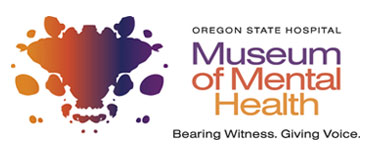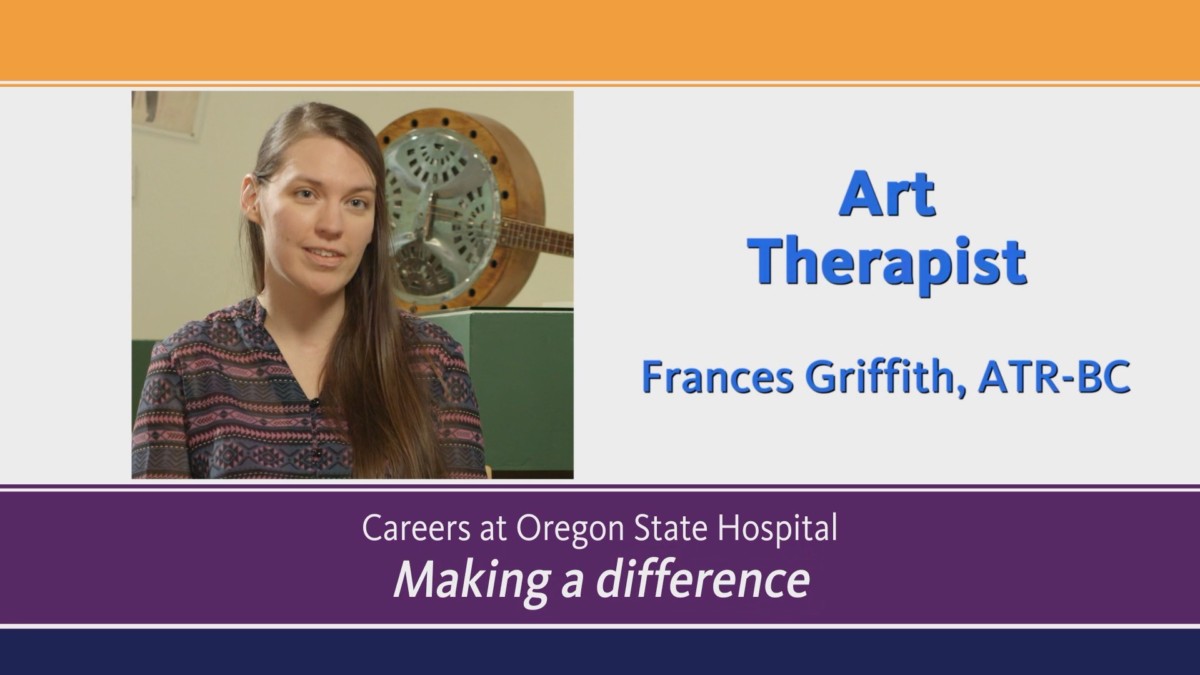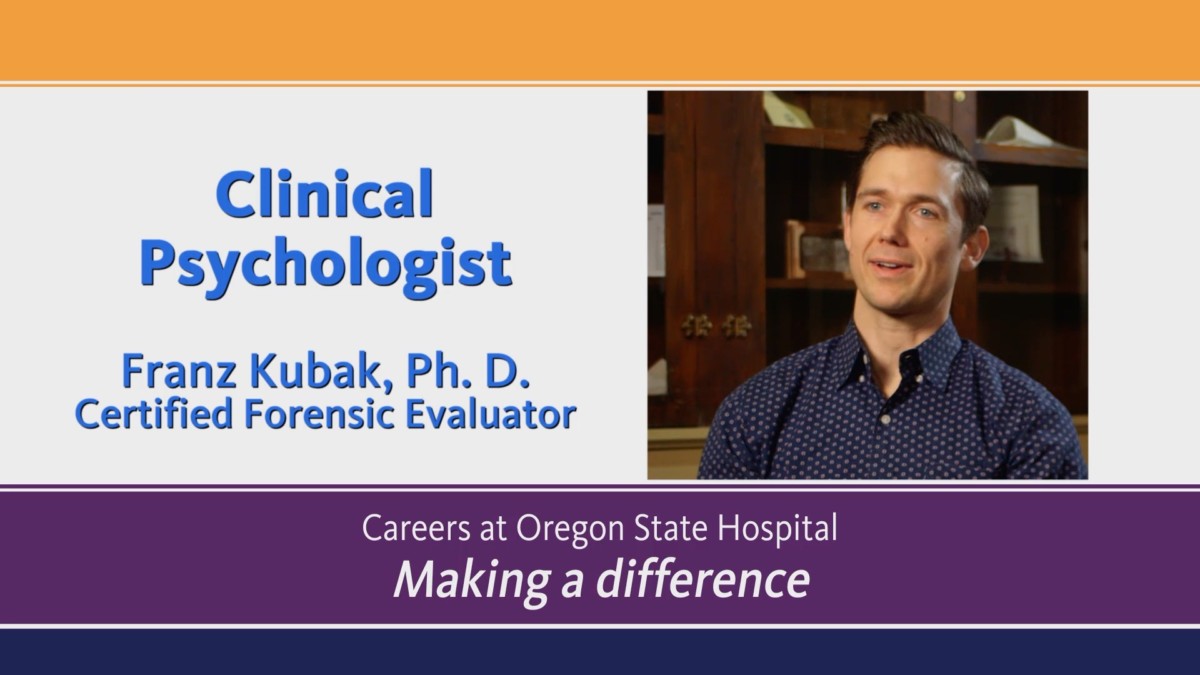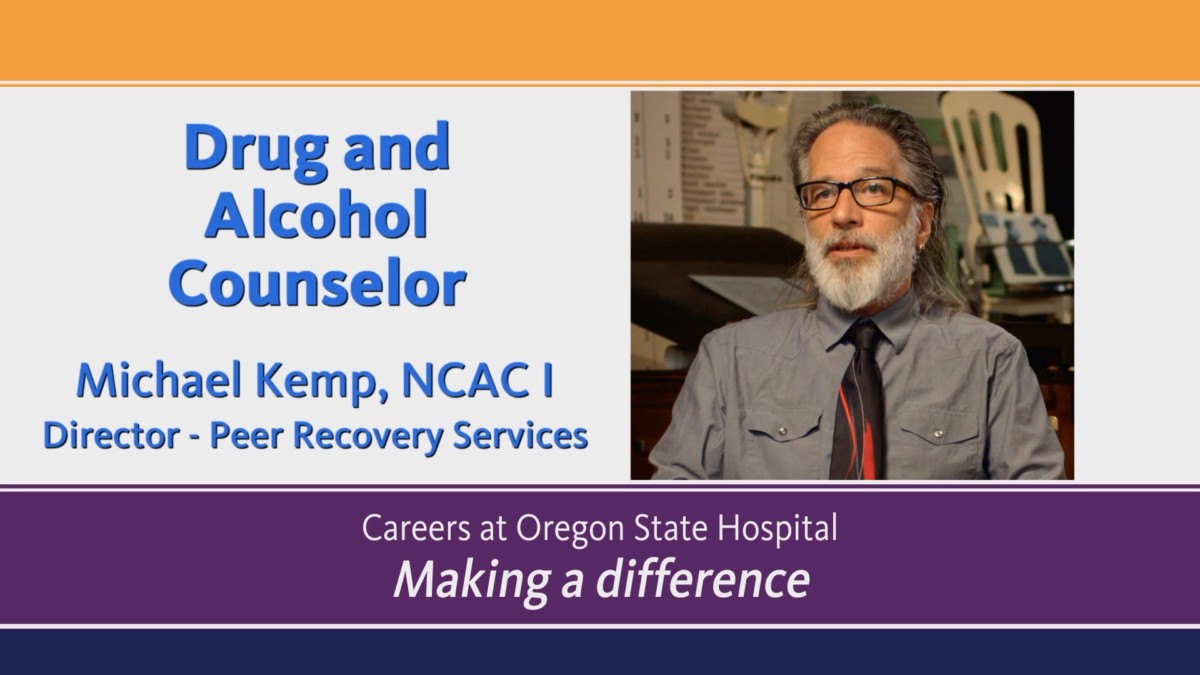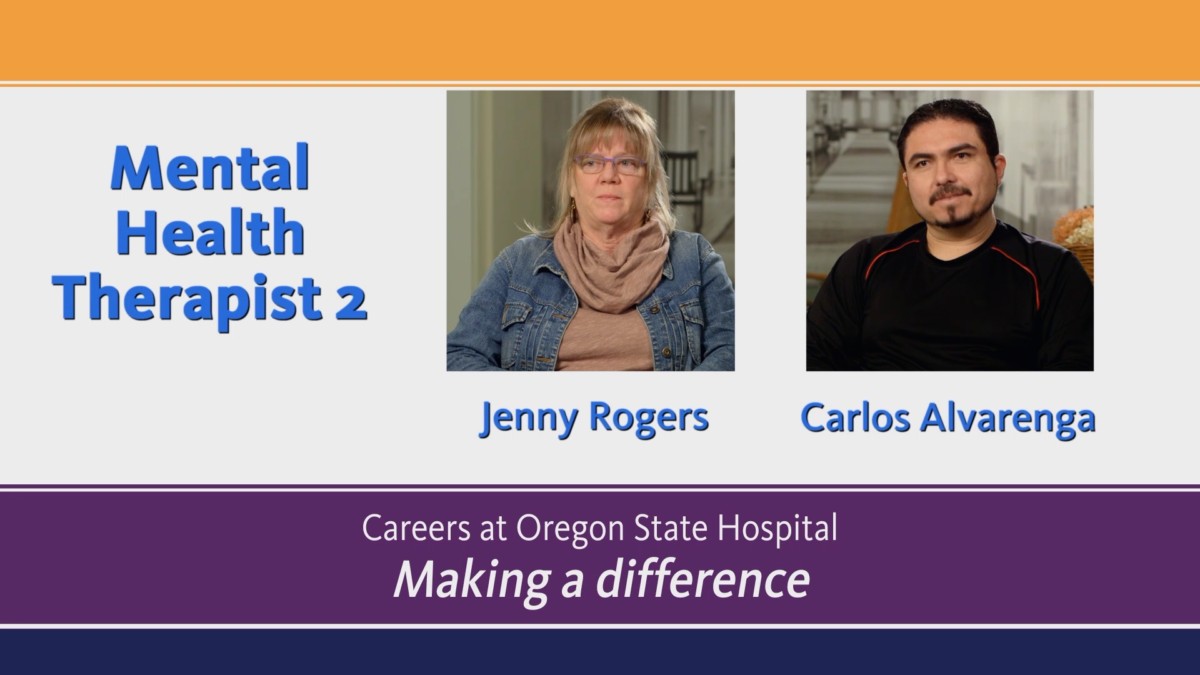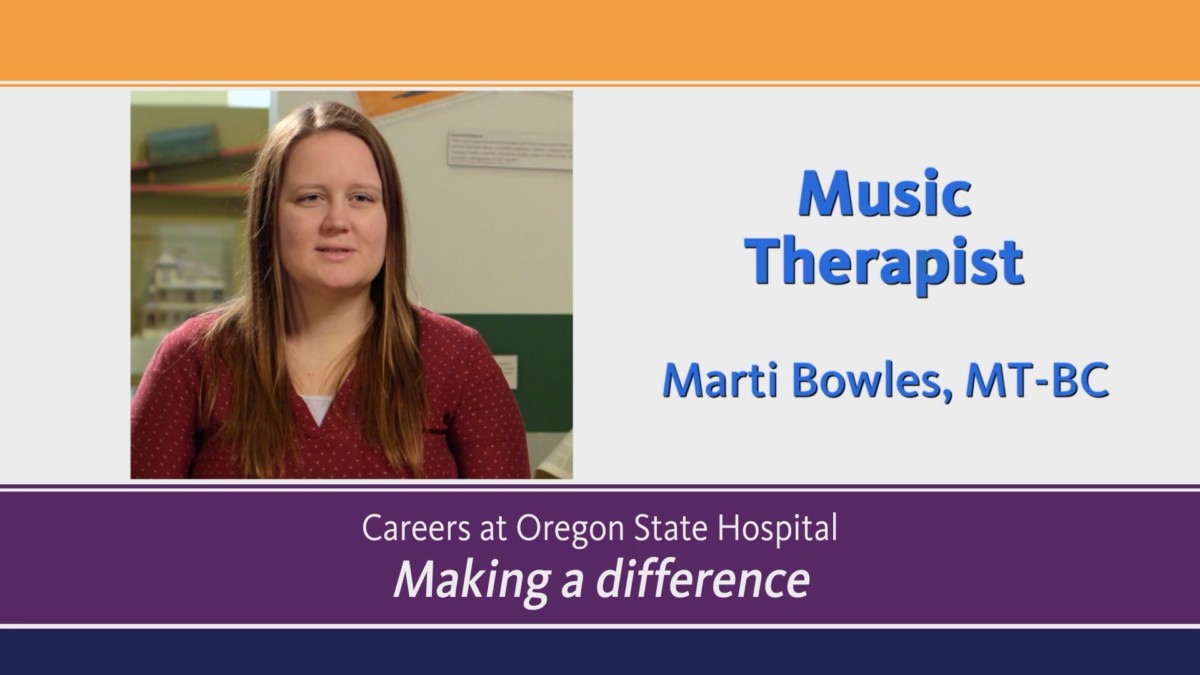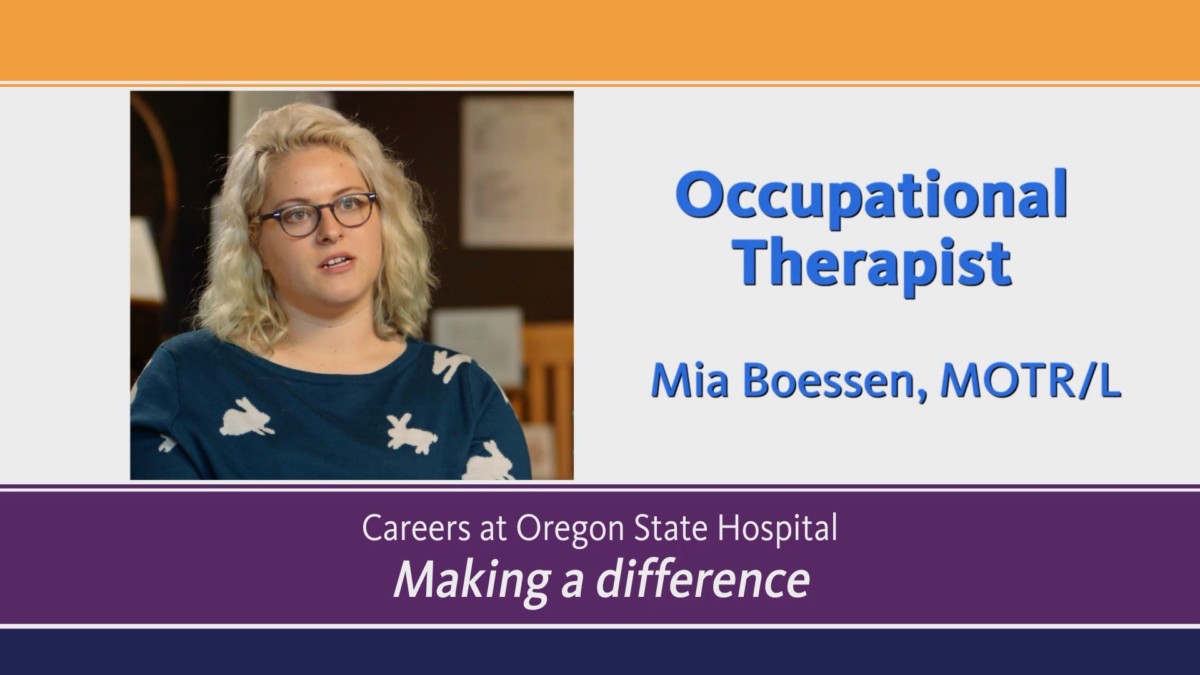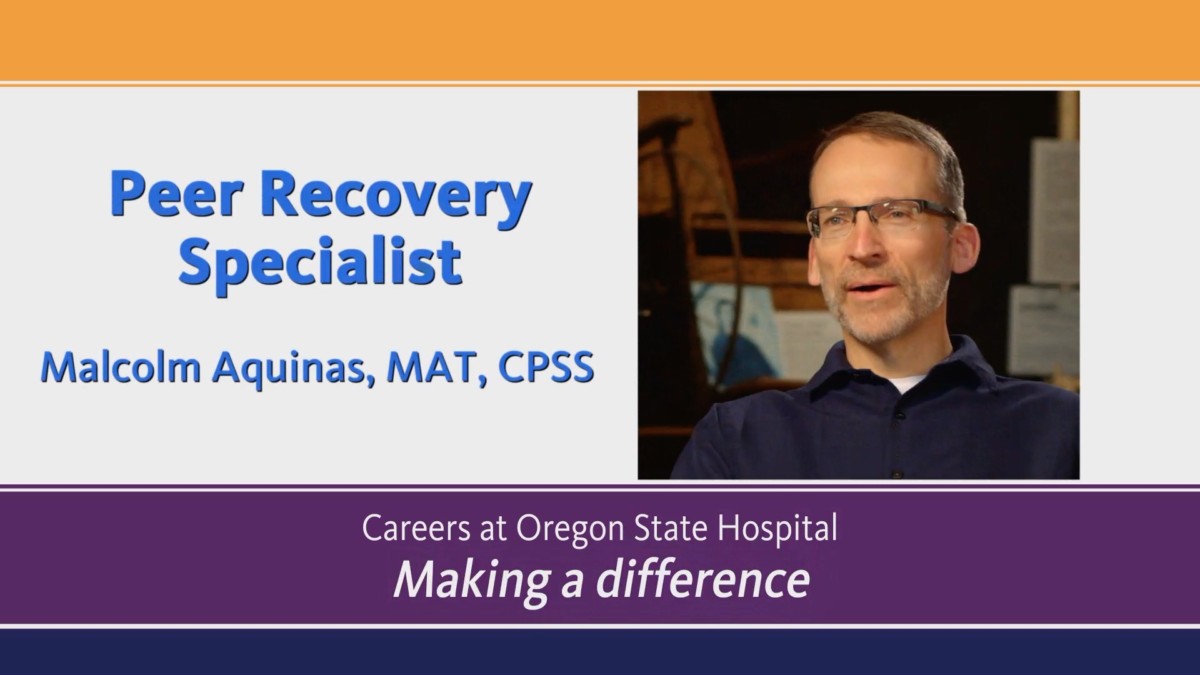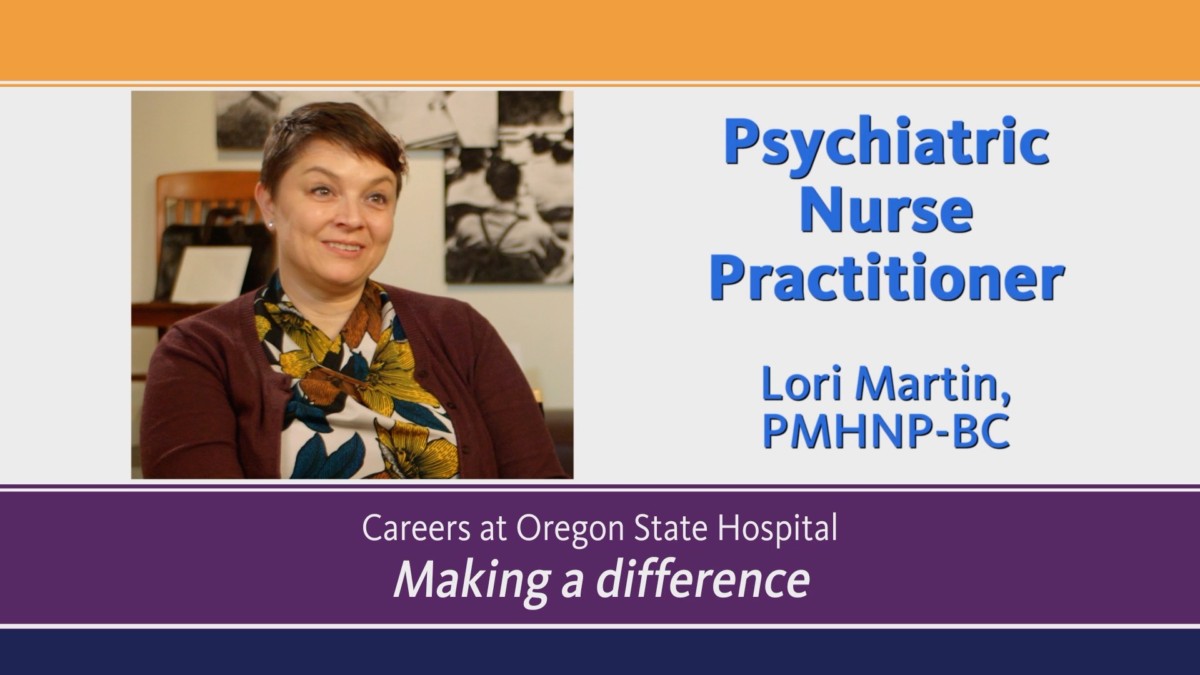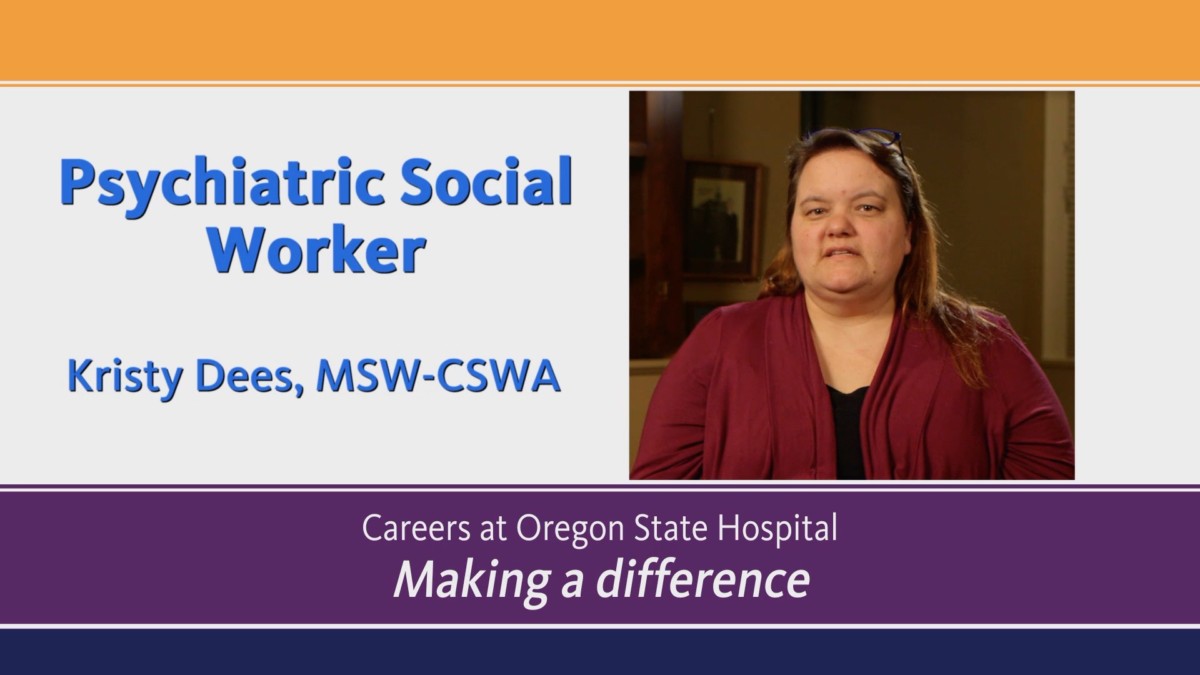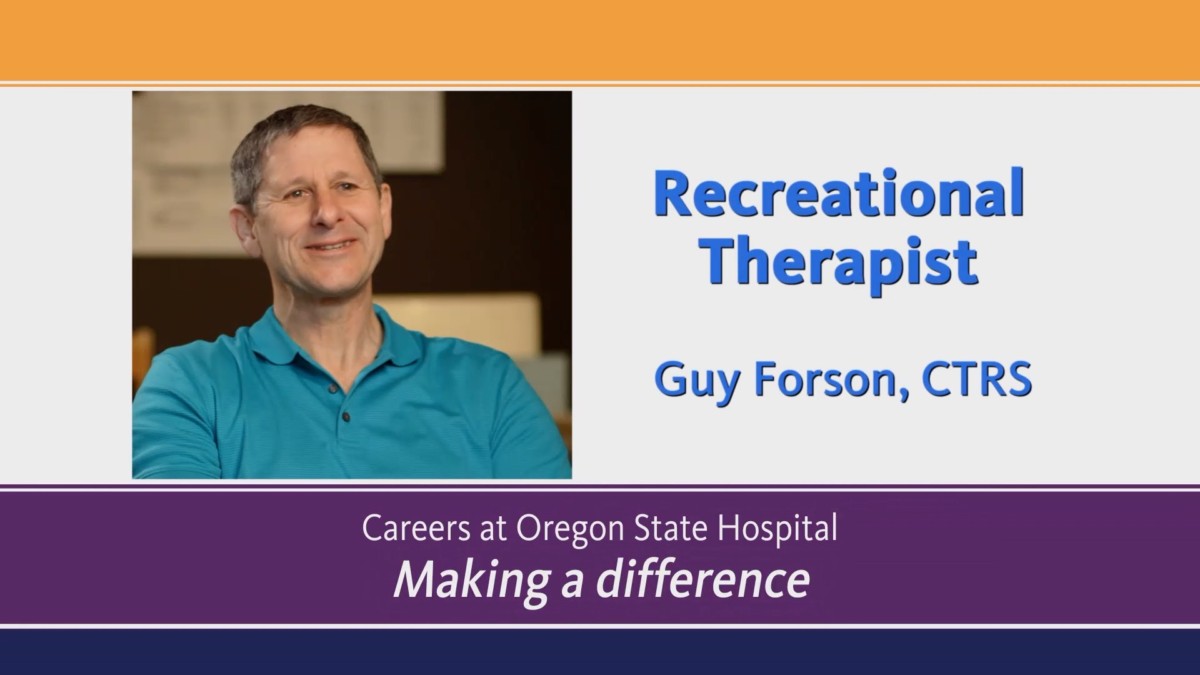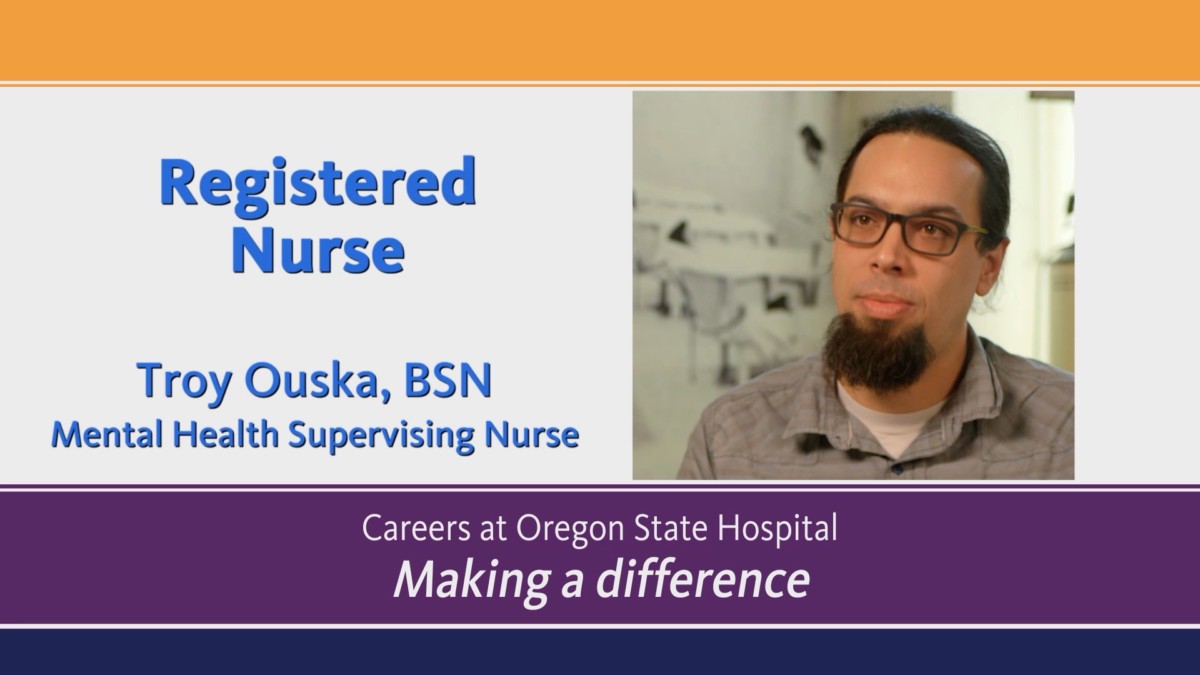Recreation Therapist
Careers in Mental Health
Guy Forson
Recreation Therapist
Generic Information
Overview
Recreational therapy is an essential part of each patient-centered interdisciplinary care team at Oregon State Hospital because it provides an outlet for those who need access to therapy types beyond traditional talk therapy. Recreational Therapists provide opportunities for patients to participate in physically engaging activities, to improve self-esteem and self-confidence while enhancing patient’s motivation and work towards personal goals. Activities and skills that patients develop can help modify specific emotional, mental, and social behaviors.
Recreational Therapists develop a rapport with their patients and help them look toward community integration after discharge. Recreational therapists also help patients with physical disabilities find ways to be active and successful through adaptations of equipment or by finding activities that best suit them.
The Recreational Therapists provide individualized assessments and treatment programs of recreational therapy. These specialized treatment services are goal- oriented and directed toward rehabilitation and modification of specific physical, emotional, mental, or social behaviors. Based upon their clinical experiences with patients, they provide input to the patients’ recovery care plan. Recreational Therapists effectively support personal and relational treatment goals.
History at OSH
The Oregon State Hospital has valued recreational activities for patients since it opened in 1883. Reflecting on the principles of Moral Therapy, the original plans for the hospital featured separate recreational yards for male and female patients, located closely near their respective wards. This allowed patients access to the benefits of the outdoors while also having privacy. Beyond the walls of the Hospital, the landscape was design to create a park like setting where patients, staff, and members of the community could enjoy the outdoors. Marked paths, manicured lawns and shrubs, and other natural features were the backdrop for many walks, picnics, and other recreational pursuits. Sports such as tennis and baseball were also played on the grounds.
In addition to providing space on campus for outdoor recreation activities, the hospital has programs to bring patients into the community and natural settings. From short day trips to multi-day camping excursions, these outings provide unique therapeutic experiences that can help patients with recovery.
While recreational activities have been a part of the therapeutic environment at the hospital since it opened, it was not until the second half of the 20th century that Recreational Therapy existed as a profession.
For more information on the educational pathway to this and other healthcare careers follow this Link to the Educational Resource page.
